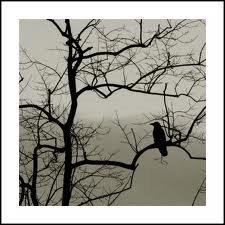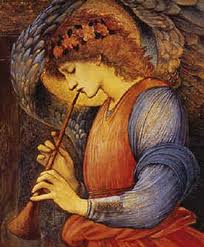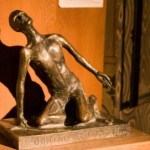Hunches a wet black rook
Arranging and rearranging its feathers in the rain.
-Sylvia Plath, from Black Rook in Rainy Weather
Advent – a season of darkness, movement in shadows, inexplicable starlight, wonder – and waiting. The word, from Latin, means ‘come to’. And yet the direction of the coming, the whereabouts of ‘to’, are a mystery. Is it God who comes? Of course it is. Or is it we who enter the darkness and travel to discover there a wonder? Of course it is.
The season begins with words about Unexpected Time — darkness and falling stars are in it – fruiting fig trees are in it – heaven and earth are passing away – and also it is ordinary, and soon.
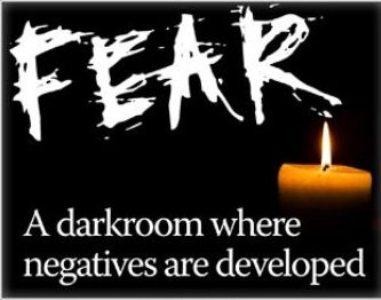 Unexpected Time raises our dread — what if this were Buffalo? what if there are riots in Ferguson, Missouri? What about ebola, now breaking out in Mali? What about a family in Nebraska, memorializing a beheaded, and beloved, son? Can the Unexpected Time raise our hope? If we look into the deep darkness of our fears, will we see God there?
Unexpected Time raises our dread — what if this were Buffalo? what if there are riots in Ferguson, Missouri? What about ebola, now breaking out in Mali? What about a family in Nebraska, memorializing a beheaded, and beloved, son? Can the Unexpected Time raise our hope? If we look into the deep darkness of our fears, will we see God there?
In desperate, inexplicable hours, in dreadful times, when the fog of despair is so thick there is no seeing beyond it, Israel has always found hope in the voice of a prophet, who had vision in the deep darkness of exile, of occupation by foreign powers, of famine and plagues. Some of them were called by angels, and some saw angels wheeling in the air. All of them could see the light of hope around them.
Advent has two great prophets, and each will speak in Advent darkness: John in the wilderness and Mary of Nazareth in the home of a temple priest, Zechariah.
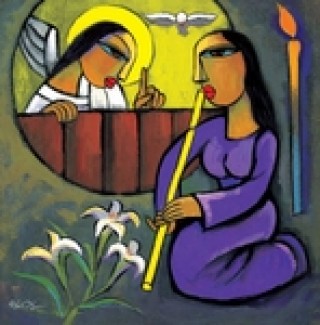 Mary, called by an angel, sets out on a journey as the truly great prophets do, as Jeremiah and Ezekiel, Hosea and Jonah, and so many do. She sets out for Zechariah’s home, and there she proclaims what God is doing, in the time of Herod, in the time of Pilate, in the time of Caesar, a time no one can see beyond or through or even deeply within.
Mary, called by an angel, sets out on a journey as the truly great prophets do, as Jeremiah and Ezekiel, Hosea and Jonah, and so many do. She sets out for Zechariah’s home, and there she proclaims what God is doing, in the time of Herod, in the time of Pilate, in the time of Caesar, a time no one can see beyond or through or even deeply within.
Using words Matthew will use in the great vision of the end of time, Mary proclaims that a Child is coming, a Child of God who tears down the mighty from their thrones, exalts those of low degree, scatters the proud in the imagination of their hearts, fills the hungry with good things, and sends the rich empty away. Her prophetic act is to bear a child.
Every prophet does something that leaves people gasping and guessing, every prophet speaks in words nobody else dares to say, or even think. Mary, whom the angel addressed as full of grace before, before, the Child was in her, stands in the long lineage of prophets. She is not a model of submission, she is a Voice, crying in the wilderness about Unexpected Time.
Mary cries out in our time, for we are lost in a dark world. Her Voice is pregnant with hope for our time. And every Advent we read her words, as we do John’s words, as we do Isaiah’s words and Malachi’s words. Hers are promises of falling stars, of heaven and earth passing away. She is Malachi’s refiner’s fire.
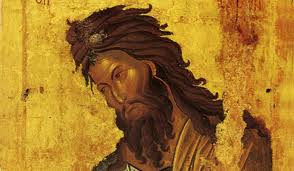 John, too, raises his voice, the axe is laid to the root of the tree, he says. He urges, he warns, he exhorts. He calls Mary’s son the true prophet. And he calls him The Lamb of God.
John, too, raises his voice, the axe is laid to the root of the tree, he says. He urges, he warns, he exhorts. He calls Mary’s son the true prophet. And he calls him The Lamb of God.
And then we press on to Bethlehem, to the Unexpected and Inexplicable Night, when all of us fall onto the stage, as shepherds, innkeepers, stable muckers, camel boys, and maybe a midwife, all dazed and confused by what we see, but seeing, seeing something we cannot understand but can never forget, and living from then on to tell the tale. The tale of how time changed, unexpectedly. The tale of how hope, that does not disappoint, came into the world. It’s a tale of a woman and a Child and some animals and great darkness and just when you needed it, a Star. A tale of god-awful bloodshed and fear, and thank God, an angel. A moment. And though all the other moments fall away, though houses, marriages, beliefs, jobs, health, governments, fade and fall away, this Bethlehem moment comes to us, again and again.
Sylvia Plath calls us into Advent in her poem, Black Rook in Rainy Weather:
I do not expect a miracle
Or an accident
To set the sight on fire
In my eye, nor seek
Any more in the desultory weather some design,
But let spotted leaves fall as they fall,
Without ceremony, or portent. . . . .
Of whatever angel may choose to flare
Suddenly at my elbow
I only know that a rook
Ordering its black feathers can so shine
As to seize my senses, haul
My eyelids up, and grant
A brief respite from fear.
With luck,
Trekking stubborn through this season
Of fatigue, I shall
Patch together a content
Of sorts.
Miracles occur,
If you care to call those spasmodic
Tricks of radiance miracles.
The wait’s begun again,
The long wait for the angel,
For that rare, random descent.
__________________________________________________
Illustrations:
1. Rainy weather, rook in tree. Google Images.
2. Fear — A Darkroom Where Negatives Are Developed. Poster. Google Images.
3. Annunciation. He Qi. Nanjing, China, 2001. Vanderbilt Divinity School Library. Art in the Christian Tradition.
4. John the Baptist. Contemporary Icon. Google Images.
5. Angel Playing a Flageolet. Edward Burne-Jones. Sudley House, Liverpool, England. Wikipedia, Burne-Jones page.

